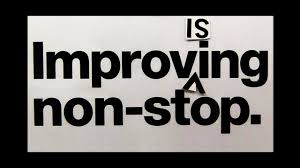Storytelling is one of the the oldest and most alluring forms of communication. Human stories, engage emotionally as opposed to offering flat, technical, esoteric text or speech which most people will struggle to relate to. We identify with characters, scenarios and emotional responses. Journeys or adventures in other words.
All drama, stories and journeys require characters meeting challenges. Sometimes they overcome these obstacles, sometimes they don’t. What is intriguing and alluring for us – and why we love to watch films, TV drama and theatre – is how characters overcome their obstacles. Many different strategies may be used. The “How” is of more intrigue than the “What” much of the time.
Tips for Effective Storytelling
- Have a central or key message. Sum up what it is you want the world to think or do differently as a result of hearing your story. Just like a presentation or keynote speech there has to be a point to your story.
2. Be distinct. There are only so many different storylines out there. Some within drama and theatre assert there are only six or seven staple stories whatsoever. Yet the plethora of films on offer, for example, would have us believe that there are many more storylines. The lesson is to be purposefully as distinct as possible in the way you tell that story. There are filmmakers and artists who, even with the backdrop of
3. Be bold. Don’t be a lame facsimile of what has been done many times already or of what happens to be flavour of the month. Storytelling works best when someone takes a risk. Don’t be afraid to shock your audience..!
4. Be succinct. Hemingway’s classic six word mastery of storytelling manages to conjure characters, challenges and context that reside only in our imaginations. “For sale. Baby Shoes. Never Used.” Just like the very best advertising copy.
5. Be curious. Don’t set out to re-hash whatever others are doing. Instead follow your innate curiosity. What is it that occupies your thinking at the moment? How does that relate to your business objectives? Is your thinking congruent with those objectives?
6. Be aware that great storytelling evokes images, sounds, memories and emotions in the audience. And people tend to buy based on emotion, not cold, hard logic.
7. Do portray a problem-solution through your storytelling. Remember we watch drama to see how characters deal with situations and how they try to reach their objective. Think of your business as such a character within a landscape of narratives.
Storytelling is a Transferable Skill
Storytelling can work wonders for keynote speeches, presentations, pitches… It can be the difference between merely turning up and going through dull slides and being remembered because you had a story.
“Drama is like a dream. It is not real. But it is really felt.”
Sartaj Garewal is the founder of Dynamic Presenting – a creative, leadership development consultancy, adapting theatre training to create leadership programs for business.
Dynamic Presenting – Enabling Powerful Communication



